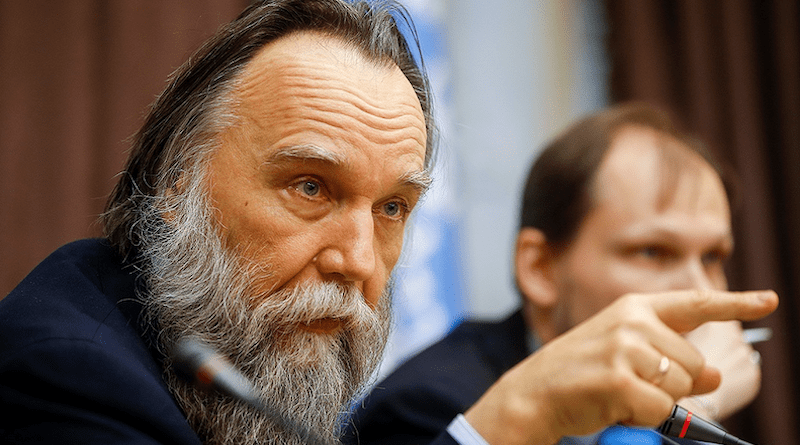Dugin’s Eurasianism Based On Same Mistaken Principles As His National Bolshevism – OpEd
By Paul Goble
Aleksandr Dugin’s Eurasianism has the same philosophical foundation as his earlier national bolshevism and thus little in common with the messianism of Fyodor Dostoyevsky and Vladimir Solovyev, whose thinking was based on “religious humanism” and a pan-European approach, Aleksandr Tsipko says.
Indeed, at the core of Dugin’s thinking throughout his intellectual career, the senior Moscow analyst says, lies “the Marxist doctrines of revolution and of death,” ideas foreign to Dostoyevsky and Solovyev (mk.ru/politics/2024/01/17/dva-mira-russkogo-messianizma-chem-proekt-aleksandra-dugina-otlichaetsya-ot-mechtaniy-fedora-dostoevskogo.html).
The messianism of Aleksandr Dugin “not only has nothing in common with Christianity or Russian Orthodox culture but also opposes them” and thus is “much closer to Leon Trotsky’s doctrine of permanent revolution than to the Christian messianism of Dostoyevsky,” Tsipko continues.
Dostoyevsky made man the most important goal of all human action, but for Eurasian ideologists like Dugin, “there is no value in human life as a person is only a means to achieve their mystical goal.” Had Russia genuinely decommunized in the 1990s, no one would be paying attention to anyone like Dugin.
“Behind the messianism of Fyodor Dostoevsky and Vladimir Solovyov there is an awareness of the unnaturalness, inhumanity of Russian poverty, Russian slavery, the wretchedness of Russian life,” but this understanding is nowhere to be found in thinkers who celebrate by self-sacrifice in support of what they believe is evidence that Russia is not Europe.
“We live in a time that our President Vladimir Putin calls ‘a tragedy not only for Ukraine, but also for Russia,’” Tsipko concludes. “But I am convinced, I firmly believe that the beauty and power of Russian culture are immortal and they will still push out of the Russian soul everything that prevents us from loving and defending life.”

